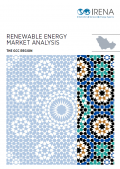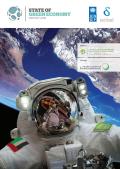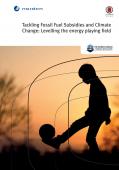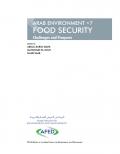

'The State of Green Economy Report 2016: Innovation on its Mind, and in its Pages' is a review and critical reflection of the findings of the World Green Economy Summit, held annually in October in Dubai. The report was developed by the Dubai Carbon Centre of Excellence (Dubai Carbon), Dubai Electricity and Water Authority (DEWA), the Dubai Supreme Council of Energy (DSCE) and in partnership with the United Nations Development Programme (UNDP).
The publication indexes green economic development, meanwhile, offering a platform for national and international experts, and thought leaders to share findings of research and development, solutions, tools, as well as replicable initiatives and case studies.
A contribution from the GGKP's Head, Benjamin Simmons, on 'Enabling Action with Green Growth Knowledge" can be found on pages 238-241 of the report.

This report presents a model that analyses fossil fuel subsidy reform across 20 countries showing an average reduction in national GHG emissions of 11% by 2020, and average annual government savings of USD 93 per tonne of CO2 abated. With a modest recycling of resources to renewables and energy efficiency, emissions reductions can be improved to an average of 18%. Some countries have included reforms in Intended Nationally Determined Contributions, toward a climate agreement. The report presents case studies from Morocco, Philippines and Jordan and was authored by the Global Subsidies Initiative of IISD, as part of the Nordic Prime Ministers’ green growth initiative.

The State of Green Economy Report 2015 was developed by Dubai Electricity and Water Authority (DEWA), the Dubai Supreme Council of Energy (DSCE) and the Dubai Carbon Centre of Excellence (Dubai Carbon) in partnership with the United Nations Development Programme (UNDP). It was launched under the framework of the World Green Economy Summit. The publication engaged the private sector, as well as the United Nations network.
Six thematic chapters touch on the progress and innovation in green economic development including smart cities and living, clean energy, sustainable lifestyle and consumer choices, responsible tourism, green industries, and environmental finance and investments.
